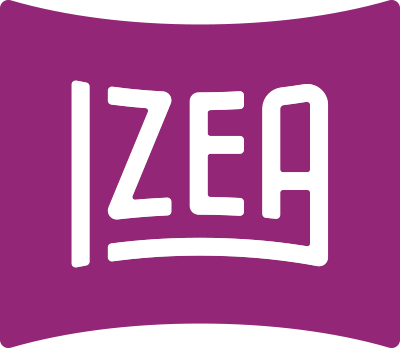Collaborating with a brand for a marketing campaign is a win-win opportunity for you and the brand. The brand gets access to your audience to promote products and expand reach. You get compensated for the work you’ve invested to build a relationship with your followers.
Leveraging Your Relationship With Your Audience
That relationship is at the heart of a successful collaboration. Social media has changed the way brands interact with their audiences. It’s not enough to create a slick advertisement with professional actors or models showing off their products. Consumers crave something more — authenticity.
For the campaign to work, you have to give your audience the content they expect from you. They follow you for a reason — to have access to the information you give them. That’s why it’s so important to find the balance between promoting the brand and maintaining your relationship with the followers who trust you.
Traditional Content vs. Authentic Content
When you take a closer look at examples of traditional and authentic marketing practices, you see striking differences between the content they produce. Ultimately, the goal of both types of content is to increase sales and profits. How they do this is where they differ.
Traditional content seeks to force a behavior or push the customer into the sales funnel. The emphasis is on what the brand wants. For example, a blog post may describe the benefits of a specific product, with an emphasis on the product itself. Its purpose is to give enough information to make the reader click through to purchase it.
Authentic content focuses on meeting the customer’s needs by answering questions or solving problems. Instead of forcing a behavior, it seeks to connect with the person reading the blog post and meet their needs. The blog post may tell a story about someone’s experience with the product or show how the product meets a specific need.
Can Ads and Sponsored Content Feel Organic?
Yes, ads and sponsored content can feel organic. In fact, they need to feel organic in order to reach the viewer. Bringing in content that’s wildly different than what your audience is used to can damage your reputation with your audience.
When you make the decision to partner with a brand, be prepared to spend some time thinking through how you’re going to execute the campaign. It’s not that your followers don’t expect to see ads in their social media feeds. They just don’t want to feel like the focus of your account is the sponsored content.
Following these tips can help you create sponsored content that feels organic.
Choose the Right Brands
Creating content that feels organic is challenging if you’re working with brands that don’t align with your views or aren’t within your niche. Look for companies that share your values and messaging. If you wouldn’t use the product or service in real life, it doesn’t belong on your social media feed.
Keep It Natural
Some pairings just don’t go together. You wouldn’t wear a tuxedo to a high school football game. Think twice before you post content about children’s books on your fitness-themed account or have your pets promote skincare products. It will take more work to make this content feel organic.
In 2014, soccer star Cristiano Ronaldo promoted the Facial Fitness Pao Smile Trainer. Not only was the device unusual, but fans didn’t believe that Ronaldo actually used it. Promoting the tool didn’t tarnish Ronaldo’s brand, but you may not be so lucky. Your audience may not be as forgiving if you openly promote products you don’t use.
Be Honest
Sometimes the best thing you can do is turn down a brand’s request for a collaboration. If you try a product and it doesn’t give you the results you expect, say no. Don’t lie to your audience. They trust you, and you violate that trust when you lie to them just to make money.
Part of your obligation to your audience is to verify the claims being made by the brand. In 2017, some of the biggest influencers in the world promoted an upcoming music festival. When the world found out that the Fyre Festival never existed, influencers had to deal with the humiliation of lying to their followers.
Avoid Adspeak
Even though your audience likely expects to see sponsored content in your posts, they don’t necessarily want to be bombarded with advertisements. Skip the adspeak — hyperbolic or vague claims, incomplete data and biased viewpoints that only elevate the product or brand.
It’s also important to avoid pretending that you’re not promoting a product. Your followers are a savvy bunch who will know when you’re sharing sponsored content. Not only do you risk alienating your audience, but you also may find yourself in legal trouble for not disclosing the relationship you have with the brand.
Be Consistent
You built your audience by being authentic and consistent. And that audience is what you have to offer the brand. The sponsored content you create should look like the rest of the content in your feed. This is easier to do when you choose brands that align with your values and aesthetic.
Be a Storyteller
You create content for humans, not search engines. People love good stories that teach them, inspire them and comfort them. Find ways to incorporate elements like characters and conflict into your branded content. Show how the sponsored product is a resolution to the problem.
Ancestry DNA harnessed the power of storytelling to promote its subscription services. The campaign featured influencers traveling the world as they traced their ancestry. The sponsored posts connected emotionally with the travel influencers’ audiences, who had a front-row seat to the adventures.
Create a Formula
Some influencers find it easier to work within a structure or simple formula for their branded content. For example, you may follow a basic story arc: establish a scene, present a problem and reveal the solution. Or you may decide to include a mention of the product at the end of the caption. The structure helps you maintain consistency.
Incorporating paid media into your regular content is possible. The challenge is to create content that feels organic instead of like traditional advertising. Aim for authenticity and keep the needs and interests of your audience in mind at all times.




